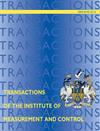Lightweight and intelligent model based on enhanced sparse filtering for rotating machine fault diagnosis
IF 1.9
4区 计算机科学
Q3 AUTOMATION & CONTROL SYSTEMS
Transactions of the Institute of Measurement and Control
Pub Date : 2023-07-13
DOI:10.1177/01423312231185702
引用次数: 0
Abstract
Rotating machine fault diagnosis plays a vital role in reducing maintenance costs and preventing accidents. Machine learning (ML) methods and Internet of things (IoT) technologies have been recently introduced into machine fault diagnosis and have generated inspiring results. An ML model with more trainable parameters can typically generate a higher fault diagnostic accuracy. However, the IoT nodes have limited computation and storage resources. How to design an ML model with high accuracy and computational efficiency is still a difficulty and challenge. This work develops an enhanced sparse filtering (ESF) method for mining and fusing the features of the machine signals for fault diagnosis. First, a dimension reduction algorithm is utilized for obtaining the principal components of the vibration signals that are hindered by noises. The distinct features of the principal components are then exploited by using sparse filtering (SF). To reduce the overfitting of the SF model, the L1/2 norm is applied to regularize the objective function. Finally, the obtained features are combined as the inputs of a softmax classifier for machine fault pattern recognition. The effectiveness, superiority, and robustness of the proposed ESF method are validated by the simulated signals and the practical bearing and motor fault signals compared with the other conventional methods. The lightweight and intelligent ESF algorithm is also deployed onto an edge computing node to realize online motor fault diagnosis. The designed model and the proposed method show great potential in highly accurate and efficient rotation machine fault diagnosis.基于增强稀疏滤波的旋转机械故障诊断轻量化智能模型
旋转机械故障诊断在降低维修成本和预防事故发生方面起着至关重要的作用。机器学习(ML)方法和物联网(IoT)技术最近被引入机器故障诊断,并产生了鼓舞人心的结果。具有更多可训练参数的ML模型通常可以产生更高的故障诊断精度。然而,物联网节点的计算和存储资源有限。如何设计一个具有高精度和计算效率的ML模型仍然是一个困难和挑战。这项工作开发了一种增强稀疏滤波(ESF)方法,用于挖掘和融合用于故障诊断的机器信号的特征。首先,利用降维算法来获得受噪声阻碍的振动信号的主分量。然后通过使用稀疏滤波(SF)来利用主分量的不同特征。为了减少SF模型的过拟合,应用L1/2范数对目标函数进行正则化。最后,将获得的特征组合作为softmax分类器的输入,用于机器故障模式识别。仿真信号以及实际轴承和电机故障信号验证了所提出的ESF方法与其他传统方法相比的有效性、优越性和鲁棒性。将轻量级智能ESF算法也部署到边缘计算节点上,实现电机故障的在线诊断。所设计的模型和所提出的方法在高精度、高效的旋转机械故障诊断中显示出巨大的潜力。
本文章由计算机程序翻译,如有差异,请以英文原文为准。
求助全文
约1分钟内获得全文
求助全文
来源期刊
CiteScore
4.10
自引率
16.70%
发文量
203
审稿时长
3.4 months
期刊介绍:
Transactions of the Institute of Measurement and Control is a fully peer-reviewed international journal. The journal covers all areas of applications in instrumentation and control. Its scope encompasses cutting-edge research and development, education and industrial applications.

 求助内容:
求助内容: 应助结果提醒方式:
应助结果提醒方式:


